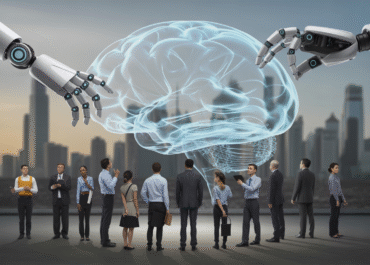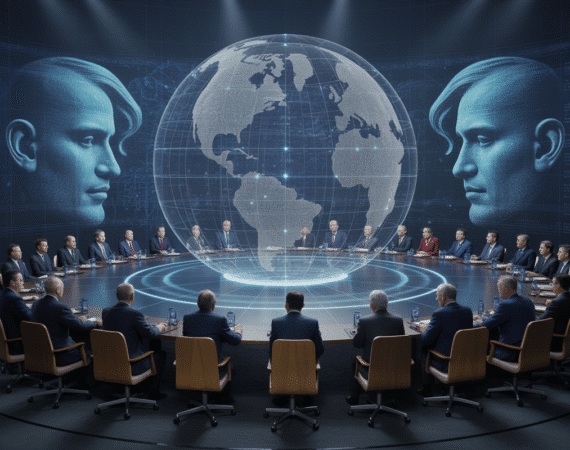Future Technological Trends in Artificial Intelligence
Artificial Intelligence (AI) is no longer a futuristic concept; it’s a rapidly evolving force that’s reshaping industries, economies, and daily lives. As we look ahead, the trajectory of AI points towards even more profound transformations. The coming years promise an AI landscape characterized by deeper integration, enhanced capabilities, and an increasing focus on responsible development. Let’s delve into the key technological trends set to define the future of Artificial Intelligence.
The Pervasive Rise of Generative and Multimodal AI
One of the most impactful trends is the expanded integration of generative AI across a multitude of applications. From crafting compelling marketing copy and designing innovative products to generating realistic images and sophisticated code, generative models are becoming indispensable tools. Their ability to create new content and solutions is democratizing creativity and accelerating innovation across sectors.
Parallel to this, the advancement of multimodal AI is set to revolutionize how we interact with technology. Imagine AI systems that can seamlessly process and understand information from various sources simultaneously—text, images, audio, and even video. This capability allows for a more holistic understanding of context, leading to more natural human-computer interactions, richer data analysis, and the development of truly intelligent systems capable of perceiving the world much like humans do.
AI in the Workplace and Hyper-Personalization
The workplace is on the cusp of a significant AI-driven evolution. We’ll see an accelerating adoption of AI in various job functions, not merely automating repetitive tasks but becoming integral to decision-making, strategic planning, and creative problem-solving. This shift will augment human capabilities, create new types of roles, and redefine productivity across industries.
Beyond the workplace, AI is poised to deliver unprecedented levels of personalization. Future AI models will be increasingly customized to individual preferences, learning styles, and specific needs. This trend extends to the creation of ‘AI companions’—intelligent, personalized assistants that go beyond simple chatbots to offer nuanced support, companionship, and tailored information, adapting and evolving with their users over time.
Tackling Global Challenges and Evolving Models
The future of AI holds immense promise for addressing some of humanity’s most pressing global challenges. AI is expected to drive innovative solutions in areas like climate change, by optimizing energy grids, predicting weather patterns, and developing sustainable materials. In healthcare, AI will continue to advance diagnostics, drug discovery, personalized treatment plans, and even assist in complex surgeries, leading to better patient outcomes worldwide.
Underpinning these applications is the continuous evolution of AI models themselves. Future models will prioritize greater efficiency, requiring less computational power and data while delivering superior performance. Crucially, there will be a strong emphasis on enhancing their reasoning capabilities, moving beyond pattern recognition to truly understand causality, make logical inferences, and learn with greater autonomy and generalizability.
The Ethical Frontier: Regulation and Responsibility
As AI’s influence grows, so does the imperative for robust ethical frameworks and comprehensive regulation. A significant trend will be the increased attention paid to developing AI responsibly, ensuring fairness, transparency, accountability, and privacy. Governments, corporations, and academic institutions will collaborate to establish guidelines and laws that mitigate biases, prevent misuse, and ensure that AI serves humanity’s best interests. This ethical compass will be crucial in building public trust and harnessing AI’s full potential safely and equitably.
The future of AI is a dynamic and exciting frontier. From enhancing our creative capacities and personal experiences to tackling grand global challenges and demanding ethical vigilance, AI is not just a technology; it’s a co-creator of our future. As these trends unfold, collaboration and thoughtful development will be key to unlocking AI’s transformative power for the betterment of society.


